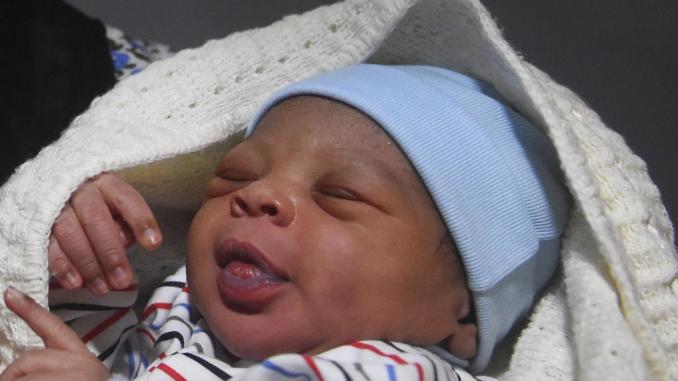An estimated 21,439 babies will be born in Nigeria on New Year’s Day, according to UNICEF.
As the calendar turns to 2021, UNICEF is again celebrating the new lives being brought into the world on 1 January. Globally, over half of these births are estimated to take place in 10 countries, with Nigeria having the third highest number of births, as follows:
India: 59,995
China: 35,615
Nigeria: 21,439
Pakistan: 14,161
Indonesia: 12,336
Ethiopia: 12,006
United States: 10,312
Egypt: 9,455
Bangladesh: 9,236
Democratic Republic of the Congo: 8,640
Nigerian babies, UNICEF said in a statement sent to Sundiata Post, will account for nearly six per cent of the estimated 371,504 babies born globally on New Year’s Day. Their average life expectancy is expected to be 62.8 years – compared to a global average of 84 years.
New years’ babies born in Ghana and neighbouring Niger have life expectancies of 73 and 71.4 years, respectively. Babies born in Central African Republic and Chad will have a similar life expectancy to those born in Nigeria – only 1.4 years less, at 61.4. This is the lowest life expectancy in the world.
The highest life expectancy, at 116.4, is for children born in Switzerland
“These figures, while difficult to contemplate, are estimates and not predetermined – there are many things we can do to improve the fate of those children born today in Nigeria. We can and must work to change the underlying factors that can improve the life expectancy of Nigerian children,” said Renu Wadhwa, acting UNICEF Nigeria Representative.
“This has been a difficult year, and there is perhaps no better way to turn the page than to welcome new young lives into the world. There are many opportunities before us in 2021, and now is the time to begin to build a better society for our children. Children born today will inherit the Nigeria we begin to build for them.”
More than 14 million Nigerian children are chronically malnourished children and 2.7 million acutely malnourished. Cross-sectoral solutions to strengthen the health, food, water, sanitation and social protection systems can reverse these high numbers and keep children alive.
As much as 43 per cent of Nigerian children do not receive all their recommended vaccinations at the right time – a critical step towards ensuring survival and good health.
Birth registration of Nigerian children under one year is still only 4.0 per cent and 54 per cent for children under 5 years. Achieving universal birth registration is an important platform for allowing children to access health care and other critical services throughout their lives.
One in three Nigerian children do not complete primary school. Education is known to improve health and life outcomes throughout a child’s life.
Only 1 in every 8 babies born will make it to their fifth birthday. Those who do survive will face other challenges as young Nigerians – especially girls. For example, an estimated one in every four Nigerian girls will experience sexual violence, if nothing is done to reverse the trend and stop violence against women and girls.
“We can make Nigeria a better place for children to survive and thrive. This new year offers a new slate with opportunities to reimagine, respond, recover and indeed build a more equitable and safer Nigeria for children, especially the girl child,” said Renu Wadhwa.
P
“As we navigate a second wave of the COVID-19 pandemic, with the economic and other challenges it may bring, UNICEF reaffirms its commitment to working together with the Nigerian government and people to promote and protect the rights and welfare of Nigerian children – to ensure that from this day of their birth onwards, they have a future they can look forward to.”
sundiatapost





